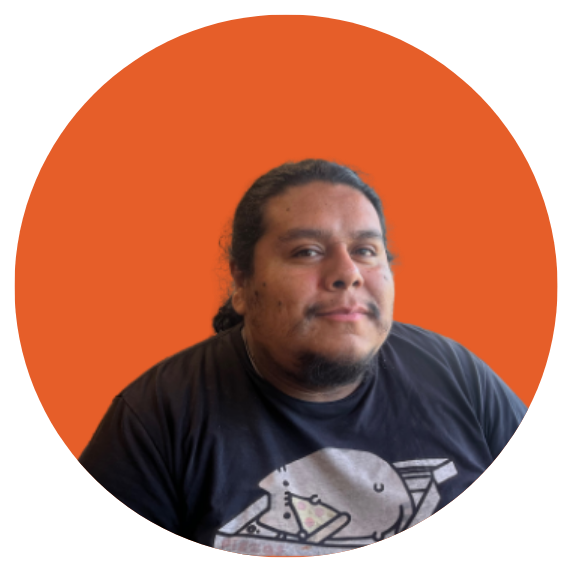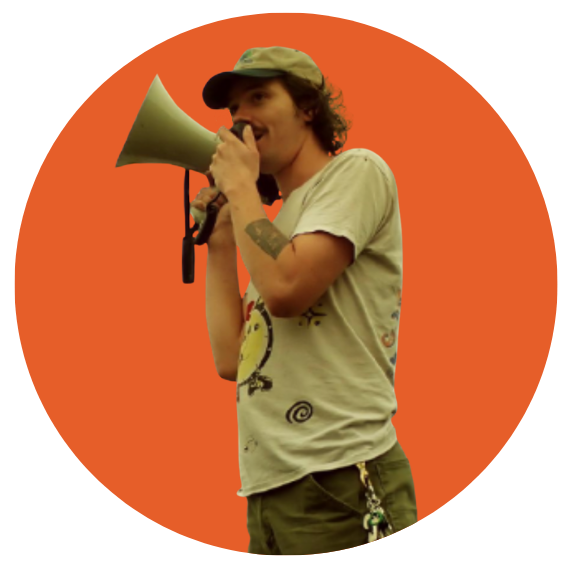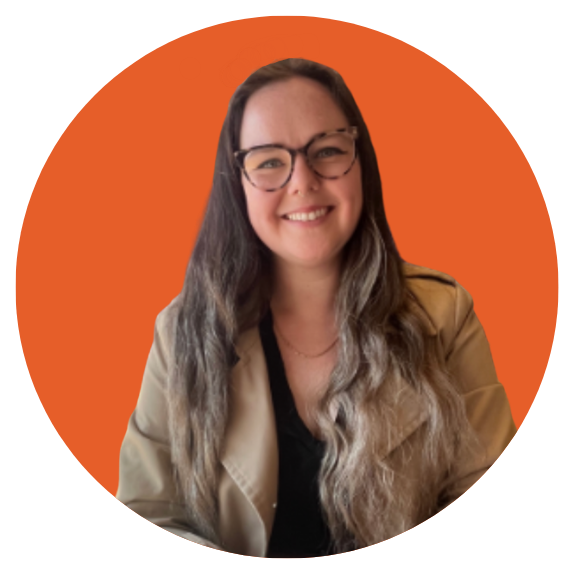SCENE REPORT: Bay Area Marches in Solidarity with Minneapolis
Protests against ICE have spread to the Bay. We wanted to hear directly from Bay Area residents who turned out in East Oakland to support the surging movement in Minneapolis.
Young workers, sick of bosses' bullshit, are hitting the picket lines. But their motivations aren’t only economic.

As a socialist labor activist since the 1970s — and as someone who lived through the depressing 80s, 90s and 00s — I’ve been thrilled to see a new generation of labor organizers get active. But I’ve also wondered: why now?
A generational change is happening — but what is it based on? In March and April of 2025, I spent hours walking the picket line at Urban Ore and talking with the strikers. I got a new answer to my question — that radical politics plays a key role in the generational shift in union organizing.
Many believe that organizing unions, strikes, and other kinds of collective action radicalize participants’ political ideas. But speaking with today’s young labor radicals, it has become clear to me that these workers were already radicals before union campaigns and strikes — their union efforts affected their political views, but mostly by making concrete ideas they already had. Workers’ commitment to unionizing arose from existing political perspectives.
I interviewed six union campaign participants, asking about both the before and the after, focusing not on the initial leaders but on those who stepped forward in the course of the campaign. What they had to say is important and inspiring.
The interviews below are edited and excerpted for readability. We wanted to make sure that the full transcripts were available for all interested. They can be read here.

What were the issues in your workplace that made you want to organize a union?
I think it's the feelings of not being respected and valued at work. I felt that in my other workplaces, too, but now the union gave us this power to push back and ask for respect.
Were you a radical/troublemaker before the union drive? What got you there?
I was kind of always like that. Growing up in East Oakland, you see the differences once you go somewhere else. It's just like, yeah, my neighborhood is trashy. There's a lot of police. I'm probably not getting the best education. Then I go to Alameda and I'm like, whoa, everything is way different, you know? So I think that's where it all comes from. I'm just trying to do my part. Hopefully things work out for all of us — not just the 1% or whatever.
Did the union drive change your political opinions?
I think it reinforced my views. At first, I was scared of doing a strike, but now I'm like: there's a fire in me — I need to do this. We've got to stick up for what we believe in. I never expected to go on strike, but now that I was a part of it, it is eye-opening. It gave me a little bit of hope to see all the support that we were getting from community members and union people who really just believed in our cause.

Were you a radical/troublemaker before the union drive? What got you there?
I was not raised in a politically open environment but my mom would identify herself as a Democrat or a liberal. She came to the US when she was young. Her family assimilated and she has that belief in the American dream. She would be shocked if she knew I was a communist. So I wasn't raised in any sort of union home, but my mom worked very hard from a young age to get a decent job and there's always been a respect for especially blue collar workers and service jobs. My grandmothers had to work service jobs their whole life and I've had to do that too. I think it’s my lived experiences that influence my politics rather than reading up on it.
I still identify as a communist. I think that with any ideology there's critiques to be had. But it's certainly better than capitalism. I feel it's becoming really important for people of my age and younger now just because we've seen the previous generation, we see how hard they work, but we also realize that a job doesn't care about you. Bosses don't care if you make a living wage and they don't care if you get laid off or fire you. I also realize that people my age are not going to have the same things our parents and grandparents had. I don't think I will ever own a house. So we're organizing to help each other to better our quality of life.
You want your job to be a place you want to stay at. And you want your job to be better for the people who are there after you're gone.

Were you a radical/troublemaker before the union drive? What got you there?
Growing up my mom's life was entirely dominated by work. When she was younger, she had a lot of ambitions about what she might do with her life, but it didn't materialize as a result of the immediate financial necessity of raising children. In order to build a stable career she has to work 14-hour days. I'd be in daycare until 8:00 p.m. at night. So I’m seeing the way in which the need to attain financial stability compromises vital parts of your life like being able to have time with your children. I think that watching my mom have to work so hard with so little social support made it very clear to me the inequities and intangible damages that a system that's bereft of social welfare creates.
I think I was receptive to socialist thought because it diagnosed that problem very directly. I became exposed to that through, like, reading Zinn in high school and then various other sorts of leftist ideological exposure spurred my interest more. I started banjo when I was 18 and became very invested in the 30s folk revival, which was extremely radical. So I think that combination of lived experiences of the costs of a capitalist structure and exposure to the sort of historical precedents and historical implications of the development of it in this country, and then engagement with the aesthetic artifacts of leftist thought would probably be like the colliding factors that inspired my sort of political mind.

What were the key issues that made you want to unionize your workplace?
There was this sense of employees being stressed and demoralized, myself included. I saw a lot of new hires who would be good employees getting forced out due to minor infractions. But what really did it was a coworker had their COVID test results mishandled, which resulted in needless exposures at one of their locations. And after that, I realized that something had to be done. I was reached out to about organizing at the beginning stages of the campaign, and I was hesitant to join. I was terrified, and I feel like that does speak to what our workplace was like, that I was so afraid, but after our first town hall, I really did jump in with both feet.
Did the union drive change your political opinions?
Not at all. It confirmed it. I for a long time had this sense that there was this imbalance in the way that, you know, workers were treated. And I had that completely confirmed by what I saw in the workplace and that really motivated me to start acting on that.

What were the issues in your workplace that made you want to organize a union?
This is the first shop I've worked at that I've met people who want to be career baristas, and who want to be in this industry for a long time, but who are not getting the pay they deserve, nor the respect they deserve. It just really made me want to organize and made me want to see an actual change. It's really eye-opening how much I have to penny pinch despite getting working at a shop with good hours and good tips. And on days that I don't have my tips, it's rough to have to scrounge a little bit because I don't have something that should have been included in my base pay anyway.
Did the union drive change your political opinions?
I've been a lot more active in activist spaces of all types, especially those encompassing my identity as a queer Filipino person in the Bay Area. The union campaign definitely opened me up a lot to that side of activism in the world. Labor organizing is just another form of large scale organizing. It's definitely made me look into the history of worker organizing a lot more. I've learned a lot about you know, where we've come from, how far we've come and how far we still have to go.
I'm feeling very positive about the direction we're moving in with our company and the moves that we're able to make. But I'm really positive about how much the union has made a community out of my workspace. Especially for a predominantly queer group, a lot of us do not have a classic nuclear family, and a lot of us have different sorts of lifestyles. It makes me really happy to see that a group of former strangers wants so badly to see good things for each other. I think that that is the biggest drive in my life right now. It is so important in today's environment to have each other's back.

Note: Alan’s name and photo are anonymized due to early-stage organizing effort.
What were the issues in your workplace that made you want to organize a union?
There is no one in my organizing committee who has my same reasons for being in the organizing committee. The reasons that I've stayed involved have been the community aspect, and just how wonderful my fellow employees are. But I would be doing this work whether or not. I feel a sense of duty as a worker to do what I can to, you know, swim against the current corporate ownership of labor, of everything.
Did the union drive change your political opinions?
I was always very afraid of using the word communism because of my upbringing. I think that that's probably the main place where I've been radicalized, is just going from a place of mainstream leftism to outright calling myself a communist and to more theory-focused support of Marxist and Leninism. It's been interesting, you know, being in workplaces my whole adult life, and to have an intuitive understanding that says: this sucks. And now I am able to contextualize this experience and to map words and concepts onto these feelings.